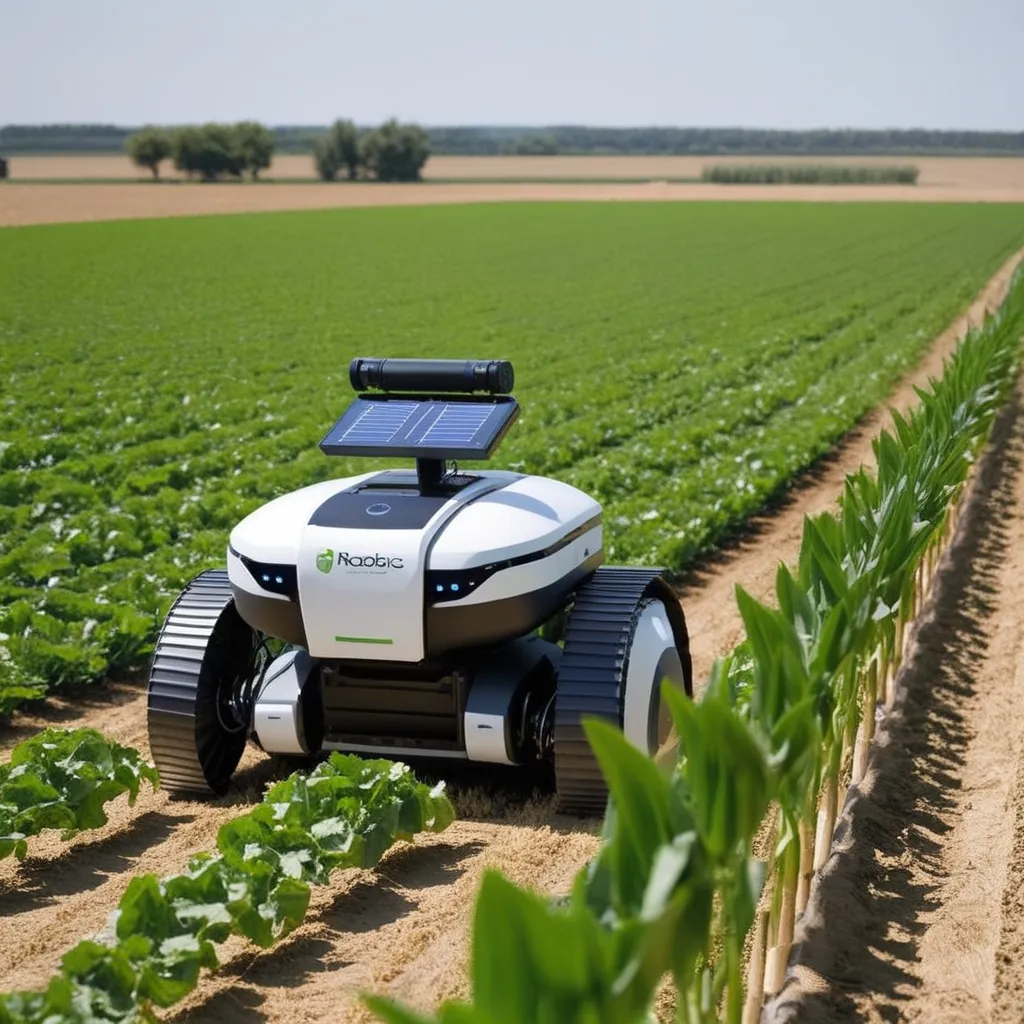Robotics in Agriculture: Farming of the Future?
When I was a child, I spent summers at my grandparents' farm. It was a place of hard work, fresh produce, and a deep connection to the land. Fast forward to today, and the world of farming has evolved significantly. With the rise of robotics in agriculture, a new era of farming is dawning, promising increased efficiency, sustainability, and even a touch of science fiction.

Childhood Memories on the Farm
As a young city dweller, visiting the farm was always a special adventure. I remember helping my grandparents pick ripe tomatoes, collect eggs from the chickens, and marvel at the towering tractors that seemed like giants to my small eyes. Those summers instilled in me a deep appreciation for the importance of agriculture and the people who work tirelessly to feed the world.
Personal Connection: My Grandfather's Wisdom
My grandfather, a seasoned farmer, used to tell me, "Farming is about more than just growing crops; it's about caring for the earth and leaving it better for future generations." Little did I know how relevant his words would become in the age of agricultural robotics.
The Rise of Agricultural Robotics
Agricultural robots, often referred to as "agribots," are revolutionizing the farming industry. These sophisticated machines are designed to automate various tasks, from planting and harvesting crops to monitoring soil conditions. They hold the promise of making farming more efficient, sustainable, and economically viable.
1. Precision Agriculture
One of the key advantages of agribots is their ability to perform precise, data-driven farming. They can analyze soil conditions, optimize irrigation, and apply fertilizers or pesticides only where needed. This not only reduces waste but also helps increase crop yields.
2. Labor Shortages
In recent years, many regions have faced labor shortages in agriculture. Agribots can help fill the gap by taking on repetitive and physically demanding tasks, allowing human workers to focus on more complex aspects of farming.
The Robot Farmers
Some of the most intriguing developments in agricultural robotics involve robots that can autonomously plant, tend, and harvest crops. These robots use advanced sensors, machine learning, and artificial intelligence to navigate fields and make decisions in real-time.
Personal Insight: From Field to Lab
My fascination with the integration of technology and agriculture led me to work on a research project in college. I witnessed firsthand how robotic systems could be fine-tuned to adapt to different crop types and environmental conditions.
Challenges in Adoption
While the potential benefits of agricultural robotics are immense, there are challenges to widespread adoption.
1. Cost
Investing in agricultural robots can be expensive, especially for small-scale farmers. The initial investment and ongoing maintenance costs can be barriers to entry.
2. Compatibility
Agricultural robots need to be compatible with existing farming equipment and practices. Adapting traditional farms to incorporate robotics can be a complex process.
The Future of Farming
As technology continues to advance, so does the potential for robotics in agriculture. We are witnessing the emergence of autonomous tractors, drones for crop monitoring, and even robot bees for pollination.
Personal Reflection: My Grandparents' Farm
I can't help but think about how my grandparents would react to the sight of a fleet of robots tending to their fields. While they might find it surprising, I believe they would also appreciate the commitment to responsible farming and preserving the land for future generations.
In conclusion, the marriage of robotics and agriculture is transforming the way we produce food. From precision agriculture to autonomous crop management, these advancements hold great promise for increasing food production while minimizing the environmental impact. As we look to the future, it's clear that farming will continue to evolve, driven by innovation and a deep respect for the land that sustains us. The farm of the future may be one where humans and robots work hand in hand to feed the world and protect the planet.

No comments:
Post a Comment